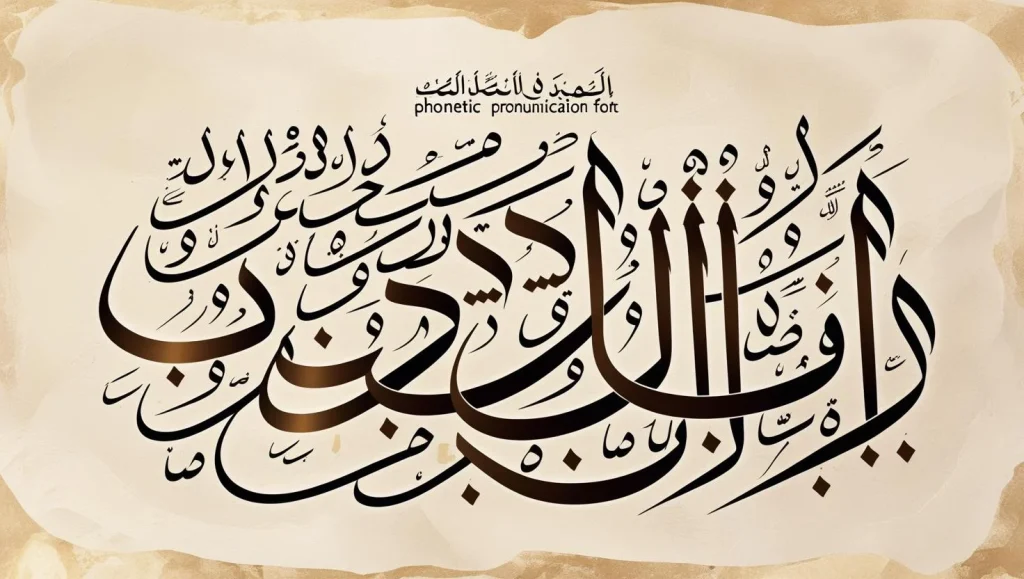Islamic condolence message traditions are meaningful and comforting to recipients. It is regarded as respectful to know how to express condolences in Islam when a person dies in a Muslim family, and it also soothes the heart. This guide contains inspirational messages, sacred prayers, and cultural tips to help you support meaningfully. Whether you are a Muslim or a non-Muslim, these prayer messages can bring happiness. Whether you want to send Arabic words in person or through text messages, you’ll find just the right word to share through this collection of sympathy messages.
What to Say When Someone Dies in Islam

Finding the right words when someone dies in Islam brings comfort through faith and shared beliefs. Islamic tradition emphasizes patience, prayer, and trust in Allah’s wisdom during times of loss.
- Inna lillahi wa inna ilayhi raji’un, To Allah we belong and to Him we return
- May Allah grant you sabr (patience) during this difficult time
- May Allah have mercy on their soul and grant them Jannah
- I pray Allah gives you strength to bear this great loss
- May the departed soul find eternal peace in Allah’s care
- Allah has called them home, may they rest in paradise
- My thoughts and prayers are with you and your family
- May Allah comfort your heart and ease your pain
- The departed soul is now in Allah’s loving hands
- May Allah reward them for their good deeds and forgive their sins
- I pray Allah surrounds you with His love and mercy
- May their soul be blessed with eternal happiness
- Allah knows what is best, may you find peace in His wisdom
- May the memories of your loved one bring you comfort
- I’m keeping you in my prayers during this sorrowful time
Islamic Condolences Dua and Sacred Prayers
Islamic condolences dua and prayers offer spiritual comfort and seek Allah’s mercy for both the departed and the grieving family. These sacred words connect hearts through faith and hope.
- Allahumma ighfir lahu warhamhu wa ‘afihi wa’fu ‘anhu (O Allah, forgive him, have mercy on him, give him strength and pardon him)
- May Allah expand their grave and fill it with light
- Rabbanaa aatinaa fil-dunyaa hasanatan wa fil-aakhirati hasanatan (Our Lord, give us good in this world and good in the hereafter)
- May Allah make their grave a garden from the gardens of paradise
- Allahumma anzilhu munzalan mubaarakan (O Allah, give them a blessed resting place)
- May Allah forgive their sins and elevate their status
- Allahumma aj’al qabrahaa rawdatan min riyaadil-jannah (O Allah, make their grave a garden from paradise)
- May Allah grant them the highest level of Jannah
- Allahumma barik lahu fimaa razaqtahu (O Allah, bless them in what You have provided)
- May Allah shower His mercy upon their soul
- Allahumma anzilhu fil-jannati bil-rahmah (O Allah, place them in paradise through Your mercy)
- May Allah protect them from the punishment of the grave
- Allahumma ighfir li-mayyitinaa wa shaahidinaa (O Allah, forgive our dead and our living)
- May Allah reunite them with righteous people in paradise
- Allahumma laa tahrimnaa ajrahu wa laa tudhillanaa ba’dahu (O Allah, do not deprive us of the reward and do not lead us astray after them)
Short Islamic Condolence Messages That Bring Comfort
Short islamic condolence message options work perfectly for text messages, cards, or quick notes. These brief phrases carry deep meaning and show your care without overwhelming grieving families.
- May Allah grant you strength
- Inna lillahi wa inna ilayhi raji’un
- Praying for your family’s peace
- May Allah bless their soul
- Sending you Islamic prayers
- May they rest in Jannah
- Allah be with you
- My condolences and prayers
- May Allah comfort you
- Thinking of you in prayer
- May Allah give you sabr
- Praying for their forgiveness
- May their soul find peace
- Allah’s mercy be upon them
- Keeping you in my duas
Arabic Condolence Phrases with Easy Pronunciation

Learning Arabic condolence phrases shows respect for Islamic tradition. These pronunciations help non-Arabic speakers offer comfort with proper respect and understanding.
- Inna lillahi wa inna ilayhi raji’un Pronunciation: “IN-na lil-LAH-hee wa IN-na i-LAY-hee rah-jee-OON” Meaning: To Allah we belong and to Him we return
- Sabr Pronunciation: “SAH-ber” Meaning: Patience
- Jannah Pronunciation: “JAN-nah” Meaning: Paradise
- Rahma Pronunciation: “RAH-mah” Meaning: Mercy
- Maghfira Pronunciation: “magh-FEE-rah” Meaning: Forgiveness
- Dua Pronunciation: “doo-AH” Meaning: Prayer
- Allahumma Pronunciation: “al-LAH-hum-mah” Meaning: O Allah
- Barakallahu feeki (to a woman) Pronunciation: “ba-ra-kal-LAH-hu FEE-kee” Meaning: May Allah bless you
- Barakallahu feek (to a man) Pronunciation: “ba-ra-kal-LAH-hu FEEK” Meaning: May Allah bless you
- Ajran wa thawaban Pronunciation: “AJ-ran wa tha-WAH-ban” Meaning: Reward and recompense
- Ajeeb ajrak Pronunciation: “ah-JEEB aj-rak” Meaning: Great is your reward
- Fi amanillah Pronunciation: “fee ah-mah-nil-LAH” Meaning: In Allah’s protection
- Yarhamhu Allah Pronunciation: “yar-HAM-hu al-LAH” Meaning: May Allah have mercy on him
- Yarhamha Allah Pronunciation: “yar-HAM-ha al-LAH” Meaning: May Allah have mercy on her
- Ghafara Allah lahu Pronunciation: “gha-FA-ra al-LAH la-HU” Meaning: May Allah forgive him
Islamic Condolence Messages by Relationship and Situation
Different relationships and situations call for specific approaches to islamic condolence message sharing. These targeted messages respect the unique bond between the deceased and their loved ones.
For Sudden or Unexpected Death
- Allah’s wisdom is beyond our understanding, may you find peace in His plan
- Though this loss feels sudden, Allah’s timing is perfect
- May Allah grant you strength to accept His divine decree
- In shock and sorrow, we remember Allah is always in control
- May this unexpected journey home bring them eternal peace
For Elderly Family Members
- They lived a blessed life and now rest in Allah’s mercy
- May their years of faith and good deeds be rewarded in paradise
- Their wisdom and love live on through family and friends
- May Allah grant them the highest ranks for their long service
- A life well-lived in faith deserves eternal rest in Jannah
For Young People
- Allah has chosen them for His mercy at a young age
- May their pure soul find immediate peace in paradise
- Young souls return to Allah free from worldly burdens
- Their brief time brought joy, may they find eternal happiness
- Allah knows best the appointed time for every soul
For Community Leaders
- Their leadership and service to the community will be remembered
- May Allah reward them for guiding others in faith
- The community mourns a true servant of Allah
- Their legacy of good works continues to benefit many
- May Allah grant them paradise for their community service
For Those Who Died in Faith
- They completed their earthly test with strong faith
- May their devotion to Allah be rewarded with paradise
- A faithful servant has returned home to their Creator
- Their prayers and worship have prepared them for eternity
- May Allah accept all their acts of worship and charity
Heartfelt Messages for Grieving Family Members
Family bonds run deep, and losing a family member requires special sensitivity. These islamic condolence message examples honor family relationships while providing spiritual comfort.
For Loss of Parents
- May Allah grant your mother the highest level of Jannah
- Your father’s love and guidance live on through you
- Parents hold a special place in Islam, may they be blessed in paradise
- The prayers of children benefit parents, keep them in your duas
- May Allah reunite you with your beloved parent in paradise
- Your parent raised you with love, may Allah reward them abundantly
- Paradise lies at the feet of mothers, may she find eternal peace
- A father’s sacrifice deserves Allah’s mercy and forgiveness
- May your parent’s good deeds follow them to the afterlife
- The pain of losing a parent is great, may Allah give you sabr
For Loss of Spouse
- May Allah grant your spouse a place in Firdaus paradise
- The bond of marriage continues in Allah’s mercy
- May Allah comfort you in the loss of your life partner
- Your spouse’s love was a blessing, may they be blessed eternally
- May Allah strengthen you as you adjust to life without your partner
- Marriage in Islam is sacred, may your union be blessed in the hereafter
- May memories of your spouse bring comfort and peace
- Allah has reunited your spouse with His mercy
- The love you shared reflects Allah’s love for His creation
- May Allah grant you both reunion in paradise
For Loss of Children
- Children who pass young become birds of paradise
- Your child is playing in the gardens of Jannah
- Allah has chosen your child for His special mercy
- May your child intercede for you on Judgment Day
- Young souls return to Allah pure and innocent
- Your child awaits you in paradise with Allah’s angels
- May Allah grant you sabr for this greatest test
- Children are gifts from Allah, He has taken His gift back
- Your child’s brief life brought immense joy and love
- May Allah reunite your family in eternal paradise
Comforting Words for Friends and Colleagues
Friendships and professional relationships require thoughtful islamic condolence message approaches. These messages maintain appropriate boundaries while showing genuine care and support.
For Close Friends
- Your friend was a blessing in many lives
- May Allah reward your friend for their kindness and loyalty
- True friendship is a gift, may your friend find eternal peace
- I share your grief for such a wonderful friend
- May memories of good times bring you comfort
- Your friend’s laughter and joy will be remembered always
- May Allah bless your friend with paradise for their beautiful heart
- Friendship in faith creates bonds that extend beyond this life
- Your friend touched many hearts with their genuine spirit
- May Allah grant you patience as you mourn your dear friend
For Work Colleagues
- Our colleague will be remembered for their dedication and character
- May Allah bless them for their honest work and good nature
- The workplace feels different without their presence
- May their family find comfort during this difficult time
- Our thoughts and prayers are with you and the family
- May Allah grant them rest after their years of hard work
- They brought positivity to our daily work environment
- May their professional integrity be rewarded in the hereafter
- We will miss their contributions to our team
- May Allah give their loved ones strength during this loss
For Acquaintances
- Though we didn’t know them well, we share your sorrow
- May Allah grant them peace and your family comfort
- Our community has lost a member, may they rest in paradise
- Sending prayers for the departed soul and grieving family
- May Allah’s mercy be upon them and strength upon you
- In times like these, our community comes together in prayer
- Though our connection was brief, we mourn their passing
- May Allah comfort all who knew and loved them
- The loss is felt throughout our community
- Our prayers join yours for their eternal peace
When and How to Express Condolences in Islam

Understanding proper timing and methods to express condolences in Islam ensures your support reaches families when most needed. Islamic customs provide clear guidance for respectful sympathy, and research shows that proper bereavement support significantly helps grieving families cope with loss.
Timing Guidelines
The period of mourning in Islam is three days within which families receive visitors. It is best to offer support immediately after receiving the news, during the three day mourning period, just after the burial ceremony and in the weeks after. Try not to go there during prayer times, after hours or the early morning.
Appropriate Methods
- In-Person Visits: Most traditional and preferred method
- Phone Calls: Appropriate for distant family or close friends
- Written Messages: Cards, letters, or formal notes
- Digital Messages: WhatsApp, text, or email for modern communication
- Community Gatherings: Joining collective prayers or remembrance sessions
Cultural Considerations
- Men and women may have separate visiting times or areas.
- Remove shoes before entering homes.
- Keep visits brief unless invited to stay longer.
- Bring simple food or necessities, not flowers.
- Speak softly and avoid lengthy conversations.
- Offer practical help like childcare or errands.
What to Bring
- Simple food items that don’t require immediate attention work best.
- Consider dates, bread, milk, or easy to prepare meals.
- Avoid elaborate flower arrangements as they’re not traditional in Islamic mourning.
- Cash donations for funeral expenses are appreciated when offered discreetly.
- Books of Islamic prayers or Quran may comfort some families.
Follow-Up Support
- Continue checking on the family after the initial mourning period.
- Remember important dates like the 40th day or anniversary.
- Offer ongoing practical help with daily tasks.
- Include them in community events and gatherings.
- Keep the deceased in your regular prayers.
What NOT to Say: Islamic Condolence Etiquette Mistakes
Avoiding common mistakes helps prevent additional pain during grieving. Understanding what not to say protects families from unintentional hurt while maintaining Islamic respect. Studies by the American Psychological Association indicate that inappropriate responses can significantly complicate the grieving process.
Phrases to Avoid
- “They’re in a better place now”, Only Allah knows someone’s destination
- “Everything happens for a reason”, This can sound dismissive of grief
- “God needed another angel”, Islamic theology doesn’t support this concept
- “I know how you feel”, Each person’s grief is unique
- “You should be grateful for the time you had”, Minimizes current pain
- “At least they’re not suffering anymore”, Assumes their previous state
- “You’re young, you’ll get over it”, Dismisses the depth of loss
- “Stay strong”, Crying and grieving are natural and acceptable
Topics to Avoid
- Never question Allah’s wisdom or timing.
- Steer clear of mentioning inheritance or money matters right away.
- Don’t share stories about other people’s similar losses.
- Don’t hint that the grieving person should remarry or have children quickly.
- Don’t offer medical opinions about the cause of death.
Timing Mistakes
- Refrain from calling right after a death unless you’re very close.
- Don’t visit in the initial hours when setting up arrangements.
- Don’t extend visits when the family seems overwhelmed.
- Don’t mention the death later on.
Cultural Sensitivity Errors
- Don’t touch or hug without permission, especially for cross gender.
- Avoid taking photos at the gathering or funeral.
- Don’t bring gifts that are against Islam.
- Avoid discussing your own religious beliefs unless asked.
- Don’t assume all Muslim families follow identical customs.
Communication Mistakes
- If you are not an immediate family member, refrain from posting this death on social media.
- Don’t post photos or details without family permission.
- Avoid sending group messages that include the bereaved.
- Do not pass on their private details to anyone else.
FAQs
The most meaningful islamic condolence message combines faith, comfort, and respect for Islamic traditions. “Inna lillahi wa inna ilayhi raji’un” (To Allah we belong and to Him we return) followed by prayers for Allah’s mercy and comfort represents the essence of Islamic condolences. Messages that recognize Allah’s wisdom, ask for forgiveness and paradise for the dead, and comfort the grieving family through faith based support are best.
To express condolences in Islam, begin with the traditional phrase “Inna lillahi wa inna ilayhi raji’un,” then offer prayers for the deceased and comfort for the family. Come during the three day period of mourning, speak quietly and limit conversation unless asked to stay longer. It is always better to get food items for the family rather than flowers. You may also offer to help them with something practical. Best of all, don’t stop praying for them after a while. Continue to include them in the community after the person’s death.
When someone dies in Islam, people say “Inna lillahi wa inna ilayhi raji’un” (To Allah we belong and to Him we return), which acknowledges Allah’s ownership of all souls. Additional phrases include “May Allah have mercy on their soul,” “May Allah grant them Jannah (paradise),” and “May Allah give the family sabr (patience).” These expressions reflect Islamic beliefs about death, the afterlife, and Allah’s ultimate authority over life and death.
The primary dua of condolences is “Allahumma ighfir lahu warhamhu wa ‘afihi wa’fu ‘anhu” (O Allah, forgive him, have mercy on him, give him strength and pardon him). Other important condolence duas include prayers against death for Allah to expand the deceased’s grave and fill it with light, grant them the highest level of paradise, and provide comfort and patience to the grieving family during their time of loss.
Send islamic condolence message support immediately upon hearing the news, during the three day Islamic mourning period, and in the weeks following for continued support. The best timing is during daylight hours, avoiding very early morning or late evening. For close relationships, visit in person during the mourning period. For distant relationships, phone calls or written messages work appropriately throughout the grieving process.
Yes, non-Muslims can respectfully send islamic condolence message support to Muslim families. Learning basic Islamic phrases shows respect and cultural sensitivity. Focus on universal themes of comfort, support, and fond memories while acknowledging Islamic beliefs about Allah’s mercy and paradise. When uncertain about specific Islamic customs, ask Muslim friends for guidance or stick to simple, heartfelt expressions of sympathy and support.
Conclusion
A heartfelt islamic condolence message offers great comfort during life’s greatest challenges. Use these kind words, sacred prayers and cultural conventions to express authentic sympathy and respect Muslim traditions. You can say traditional Arabic phrases, simple English messages, or even digitally, but be genuine and respect the deceased’s family religion while choosing anything. It’s worth realizing that prayers, practical help and inclusion in community life beyond the mourning period matter a lot. May these words comfort the bereaved and help maintain our noble Islamic tradition of caring for each other at times of loss. By faith based solace and real human connection, we pay homage to the departed souls and to the families left behind.








